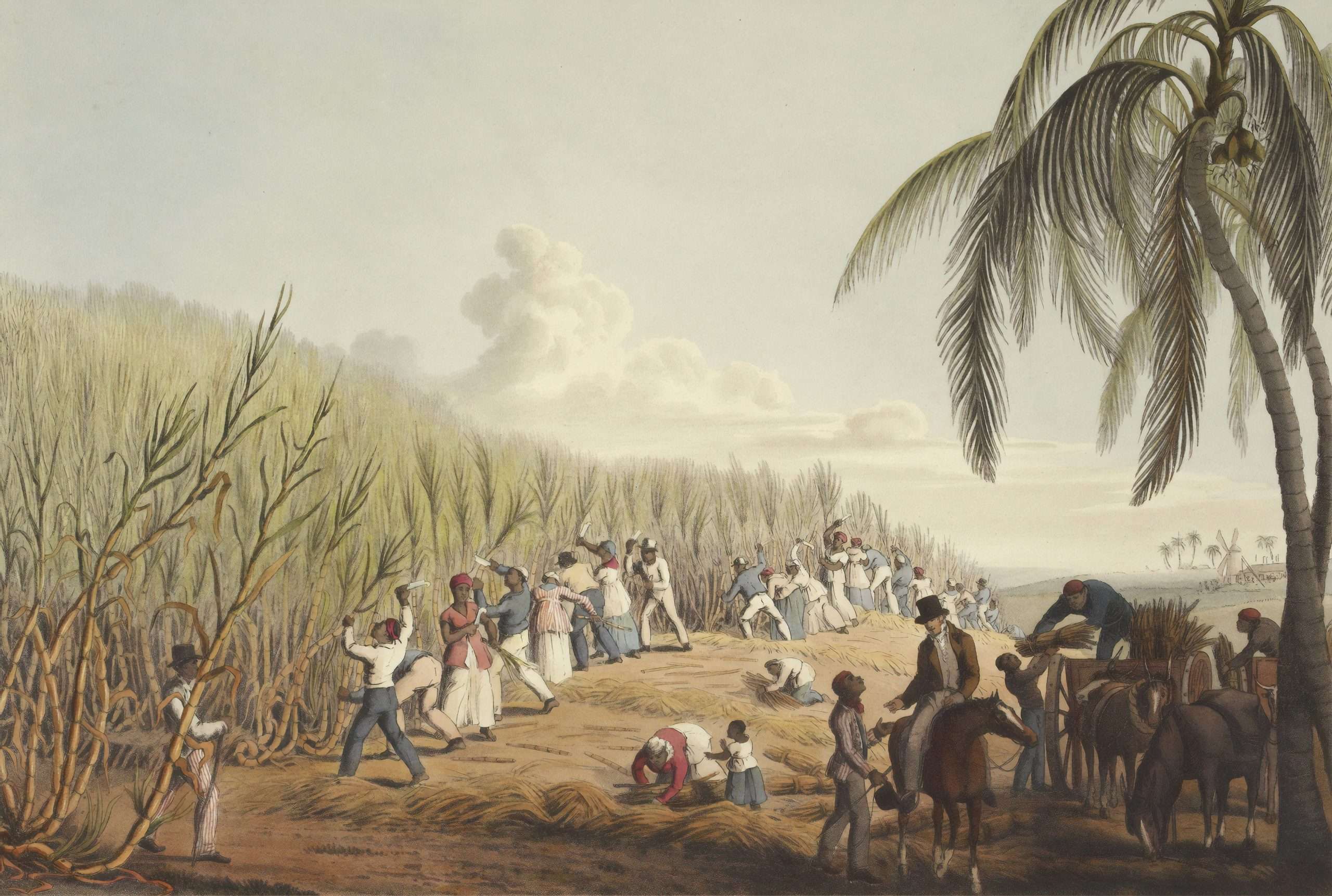British farmer, Tom Clarke, explains the murky links and corporate interests between sugarcane manufacturing, Brexit, the Conservative Party, and the history of slavery.
Tom sits on the National Farmers Union of England and Wales’ sugar board. His Twitter thread on sugar has had several thousand retweets and likes, and sparked a discussion with hundreds of messages.
The British Empire was built on tobacco, sugar and cotton. Tropical crops that were popular & couldn’t (then) be homegrown.
Working on plantations was punishingly hot, hard and dangerous and quickly became the work of indentured, then slave, labour /2 pic.twitter.com/zgRnexPL2s— Tom Clarke (@Tom_Clarke) June 13, 2020
Britain’s first recorded consumer boycott was launched around the start of the 19th century by the catchily-named Anti-Saccharites who campaigned against cane sugar because of the unethical and cruel use of slave labour. Some grocers reported sales falling by half. /4 pic.twitter.com/2ov6HyrPzT
— Tom Clarke (@Tom_Clarke) June 13, 2020
But Britain continued to get its sugar from the Carribbean and South America. Cuba & Brasil remained slave states, and British Guiana & Trinidad used a system of indentured labour.
British-owned sugarcane plantations & labour practices fed the Caribbean’s poverty & dependency./6 pic.twitter.com/xup5b5jQjo— Tom Clarke (@Tom_Clarke) June 13, 2020
But the UK was attached to it’s Empire and sugarcane kept the colonies ticking over, so homegrown beet sugar only got to supply about half the UK market. In 1972 we joined the EC and new laws capped homegrown sugar production at 1m tons, guaranteeing market access to imports /8
— Tom Clarke (@Tom_Clarke) June 13, 2020
More widely, a 2017 poll said 60% of Brits didn’t know we grew sugar in this country.
Despite Silver Spoon sugar being the best selling brand since 1978.
Homegrown sugar is sustainable, ethical and efficient – we can now grow more sugar per acre in Norfolk than in Brasil. /10 pic.twitter.com/c56Inzs07x— Tom Clarke (@Tom_Clarke) June 13, 2020
What’s wrong with cane plantations now slavery is long since abolished?
Firstly, there remain some appalling labour practices & in some regimes large cane mills exploit small cane farmers and keep them in penury.
Migrant workers abound & wages are low /12https://t.co/Z7cy73tEbe pic.twitter.com/RlwhrOJhjz— Tom Clarke (@Tom_Clarke) June 13, 2020
So, a few days ago, the Govt announced it’s tariff policy for Jan 1st. The ONLY agricultural allocation of tariff free quota in the whole schedule is for… cane sugar. “A straightforward subsidy to Tate & Lyle” says Chair of the ACP/LDC sugar group /14https://t.co/94lhXWYbdU
— Tom Clarke (@Tom_Clarke) June 13, 2020
So there we have it.
Sugar was always going to be a litmus test for this government. ‘Taking back control’ & flying the ?? vs. ‘free trade’ & cheap food at any cost. That cost is lower environmental standards, legacies of slavery & echoes of empire. https://t.co/qI2sApNjeq— Tom Clarke (@Tom_Clarke) June 13, 2020
— Tom Clarke (@Tom_Clarke) June 13, 2020
–
More about Tom Clarke
Tom is a fourth generation Fenland farmer in Cambridgeshire, England. He farms 1,000 acres, growing milling wheat, sugar beet, potatoes and other crops such as linseed.
He says; “Our farms have more than 15% of their area dedicated to improving nature, and are very pleased to have a number of Red Status bird species thriving on the farm, including: Skylarks, Grey Partridge, Corn Buntings, Linnets, Yellow Wagtails and Cuckoos.”
Main photo by British Library on Unsplash

